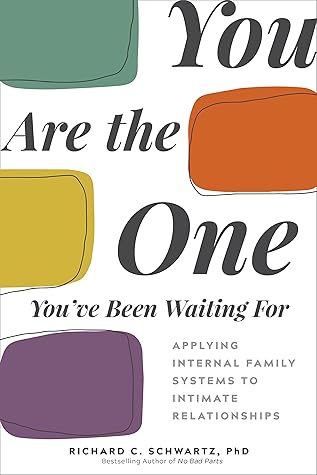More on this book
Community
Kindle Notes & Highlights
Read between
November 7 - December 10, 2024
The time will come when, with elation, you will greet yourself arriving at your own door, in your own mirror, and each will smile at the other’s welcome and say, sit here. Eat. You will love again the stranger who was your self. Give wine. Give bread. Give back your heart to itself, to the stranger who has loved you all your life, whom you have ignored for another . . .
Courageous love involves accepting all parts of the other because there is no longer a need to keep the other in the confining roles of parent/redeemer/ego booster/protector. The
Thus this ability to care for yourself emotionally permits the intimacy you seek because you have the courage to allow your partner to come close or get distant without overreacting. With less fear of losing or being hurt by your partner, you can embrace them fully and delight in their love for you.
whenever a relationship creates exiles, it will pay a price.
You can become your own healer—the special person your vulnerable parts have been waiting for. When that happens, your partner will be released from the redeemer trap and its accompanying projects, and true intimacy will be possible.
In this state of Self, clients realize that they already know how to take care of their inner exiles on their own and that those parts don’t need salvation because they were never bad to begin with. I refer to this state of Self as Self-leadership.
Our culture offers many other life preservers—television, social media, shopping, working, smoking, legal and illegal drugs, alcohol, pornography, prostitution, plastic surgery, diets and exercise, fatty and sweet foods—all the common addictions.
As the American novelist John Updike said, “America is a vast conspiracy to make you happy.”
We become convinced that happiness is as close as the next new pair of shoes, a weekend getaway, or a new job.
These distractions become part of a vicious cycle that keeps us addicted to the search for head-above-water happiness and away from a more sustaining happiness.
Our empty selves have been conditioned to sate that hunger with material possessions, which has created a powerful economy that gives us the illusion that we are doing well. But our inner lives are not doing well.
to work and compete so hard, they each must become dominated by striving parts that don’t lend themselves to intimate vulnerability.
Stress, depletion, and isolation make it harder to control our inner demons, consequently increasing the pressure on our one intimate relationship to keep the waves of self-loathing and insecurity at bay. This is an impossible task, but we still expect it to work, and we feel like abject failures when it doesn’t.
When you don’t fear drowning because there’s no longer a dark body of water threatening to swallow you up, and when your inner world is one of abiding love, you don’t grasp for the life preservers our culture constantly throws at you. Your material needs are simple, and you value relaxed human connection over nonhuman escape. You have time and energy to nurture an intimate network that extends well beyond your partner, so they aren’t the only target of your parts’ desires. As
what is toxic are the emotions and beliefs the exiles carry—their burdens—not the exiled parts themselves.


